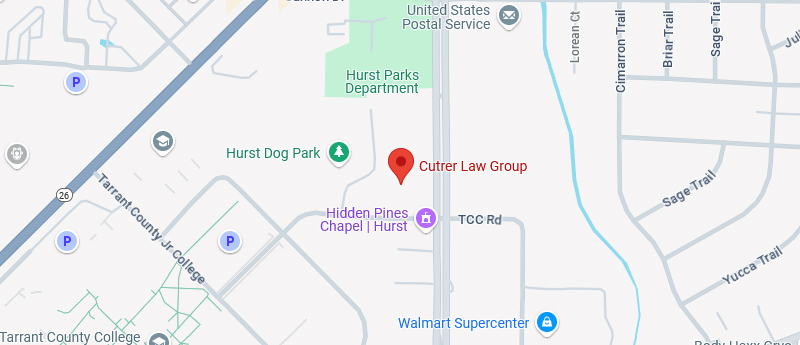Wills Lawyer Making a Difference for Clients in Bedford and Throughout Texas
Nobody likes to think that someday they will be gone from this earth, leaving family, friends, and loved ones behind. Whether we think about it or not, the day will come. While we can hope that we will be around for a long time to come, unexpected tragedy can strike at any time. If that happens and you have not yet drawn up a last will and testament, your family can be subjected to a long and expensive probate process, and your wishes for your estate may not be followed.
A will is an important document for anyone to have, including younger people and parents of young children. Wills are not just for old people. You need to ensure that your family is cared for and that you have a say in who will manage your affairs after you pass away. A will is a way to do that. Attorney Anita K. Cutrer has over 20 years of experience helping people like you get their affairs in order and make sure their families will be taken care of no matter what happens.
Call our office today at 817-854-1651 to begin protecting your family’s future.
What Can a Will Do?
A last will and testament can do several things. If you have minor children, you can use it to name the guardian you choose to raise your children should both parents be unable to do so themselves. A will can also specify your wishes as to the distribution of your estate to your heirs. This can be as simple as “everything goes to my spouse” to assigning particular items of personal property to individual heirs.
Some people think that having assets in a trust or trusts means that a will is not necessary. This is not generally true. Even if all of your assets are held in a trust, a will is the only way to name a guardian for minor children.
Furthermore, there could be assets that have not been transferred into a trust, even where one or more exist. Recent purchases, for example, may not have been transferred yet at the time of death, or some assets may have been simply missed in the process of funding the trust. A “pour-over” will can specify the disposition of any assets not included in trusts, whether intentionally or unintentionally excluded from the trust(s).
What Are the Duties of the Executor of a Will?
In your will, you will name an executor. It is this person’s duty to administer the estate after your death. This means that the executor will gather the assets, pay any outstanding debts or obligations, and distribute the remainder to your heirs according to the wishes you stated in your will. Being an executor is considered a fiduciary responsibility, which means that the executor is legally bound to act ethically and in accordance with the will. An executor who violates their duties by diverting some assets to themselves, for example, will be held accountable by the courts.
The probate court will oversee the administration of the estate in most cases, which serves as a safety check ensuring that the executor is properly administering the will and is fulfilling all fiduciary duties.
How do I Choose an Executor?
When choosing the executor of your estate, there are many factors to consider. First, the person should be young enough that they are likely to be alive and mentally competent at the time of your death, hopefully in your old age. They cannot be minors, however. The executor should be someone who can handle the paperwork and financial transactions, and who is efficient and can meet deadlines. Obviously, the executor should be someone you trust to handle your affairs in a legal and ethical manner. While most people name a loved one, such as a child, to serve as an executor, it is also possible to name a lawyer, financial advisor, or other unrelated professional to serve as your executor. While things can certainly change over time, choosing an executor that your family is likely to accept and not challenge is ideal.
What if I Die Without a Will in Texas?
If you die without a will in Texas, which is called dying intestate, the probate court will distribute your assets according to the laws of intestacy. Who gets what will vary according to whether you are single or married, have children, or have other living relatives. If you are married and have children, what share goes to your spouse and each child depends on a number of factors, including how many children you have, whether your spouse is the parent of the children, and whether children who are not yours biologically were legally adopted by you or not.
If you are not married and do not have living children or grandchildren, your assets will go to other living relatives, such as your parents or siblings. If you are a single person without any living relatives and die without a will in Texas, your assets will go to the state.
Other decisions that will be made by the court if you die without a will is who will raise your children if the other parent is unable and who will be the appointed agent to administer the estate.
Having a will is important for many reasons. It allows you to determine who will raise your children if you are unable, who will represent your financial interests after your death, and whether your wishes are known.
Contact the office of Anita K. Cutrer, Attorney at Law, at 817-854-1651 to draw up a will that will protect the future of your family and make sure that your wishes are honored.


 1845 Precinct Line Road
1845 Precinct Line Road info@akcfamilylaw.com
info@akcfamilylaw.com 817-854-1651
817-854-1651



